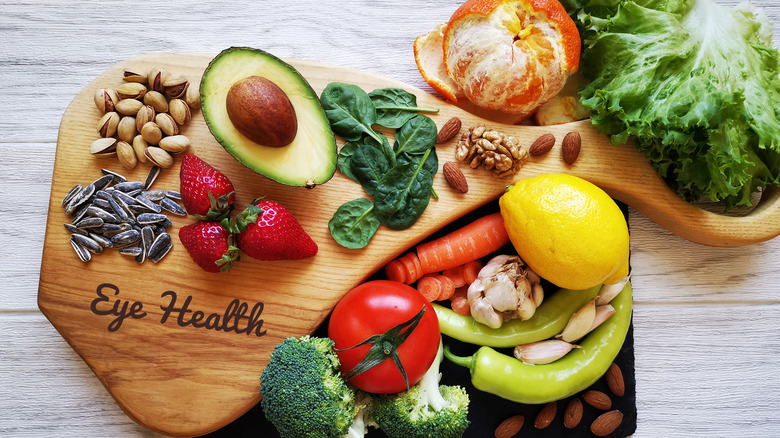Foods That Help Prevent Glaucoma
You might have always been told that carrots are good for your vision, but it turns out that might be even more true than we realize, according to the Glaucoma Research Foundation. Its advice on what foods to eat to reduce your risk of glaucoma includes lots of fruits and veggies, and this might be worth focusing on to take care of your eyesight.
Glaucoma is a leading cause of blindness in people over the age of 60, according to the Mayo Clinic. In glaucoma, fluid that flows throughout the inside of the eye builds up due to being unable to drain or overproduction. This buildup can lead to elevated pressure in the eye, which damages the optic nerve. If untreated, it can cause blindness, but even with treatment, 15% of people with glaucoma will go on to become blind in at least one eye within 20 years.
Glaucoma may develop gradually, meaning that by the time you have symptoms, the disease may already be at an advanced stage. Signs include patchy blind spots in your peripheral vision, eye pain, blurred vision, tunnel vision, severe headache, and eye redness. It's important to have regular eye exams that check your eye pressure to prevent glaucoma. Once you have it, you'll need treatment for the rest of your life.
Foods to focus on for eye health
The Glaucoma Research Foundation says that while certain foods can't totally prevent glaucoma, there are some that can help reduce your risk (via WebMD). First, it recommends focusing on fruits and veggies, as they're high in vitamins A and C. You can also focus on the antioxidants lutein and zeaxanthin, which protect against oxidative stress associated with damage to the optic nerve. A 2012 study published in the American Journal of Ophthalmology looked at 584 Black women to assess glaucoma risks. They found that those who had three or more servings of fruit or fruit juice per day were 79% less likely to develop glaucoma than those who consumed less than one serving.
Vegetables to prioritize are dark leafy greens, such as kale and spinach. Research from the Harvard Medical School shows that there may be a link between eating more leafy greens and reducing your risk of developing glaucoma.
Nuts and seeds are also important, as they contain vitamin E, which helps keep cells healthy and protects them from damage. Fish high in omega-3s, like salmon and tuna, can be beneficial, too. Eating more omega-3s has been shown to decrease glaucoma-related pressure in the eye. A 2018 study published in the British Journal of Ophthalmology also showed that drinking tea might be helpful — in the study, those who drank at least one cup of hot tea every day had a 74% lower risk of developing glaucoma.


